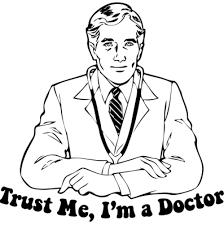 “Do you trust your doctor” talks about what’s happening to our medical profession. There is this niggling feeling that something is going on which restricts our doctors from being the doctor they were when first they took the oath. It’s as though they’re shackled in some way, unable to use their skills as physicians but only able to dish out prescription drugs. Are they being controlled?
“Do you trust your doctor” talks about what’s happening to our medical profession. There is this niggling feeling that something is going on which restricts our doctors from being the doctor they were when first they took the oath. It’s as though they’re shackled in some way, unable to use their skills as physicians but only able to dish out prescription drugs. Are they being controlled?
What’s wrong with natural?
It is unbelievable that doctors of today don’t know, or choose to ignore, the benefits of treating the sick body by looking into the root cause of the sickness. He surely must know that treating with a natural remedy is far superior than prescribing a toxic drug which may control a disease but will likely make it worse. So what’s going on?
What’s influencing our doctors?
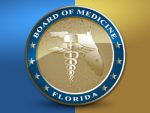 I decided to look into what may have influenced our doctors to subtly change their modus operandi and why they may be restricted in how they manage their patients’ diseases and conditions. The first issue I came up against was the Licensing Boards.
I decided to look into what may have influenced our doctors to subtly change their modus operandi and why they may be restricted in how they manage their patients’ diseases and conditions. The first issue I came up against was the Licensing Boards.
The majority of the problems I found related to the US but the UK and other jurisdictions will be similarly affected. I list below subjects that I think may control and effect how our doctors work.
-
Licensing Boards
A doctor nowadays will be very aware of his dictate to keep within the bounds of his licensing board rulings. If a doctor does not abide by the rules, his/her licence may be revoked which means they can’t work. This makes a doctor’s first allegiance to be to his licensing board rather than to his patient. Straight away, the doctor has to be aware that he cannot treat his patients in an innovative way, even if he thinks it may benefit that patient. Outdated and ineffective treatments are protected. Thinking outside the box, forward thinking or common sense approaches will be frowned upon if they don’t uphold the status quo.
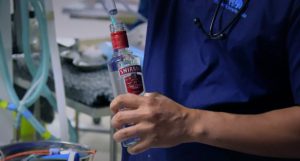 Doctors are not allowed to think for themselves
Doctors are not allowed to think for themselves
I was watching a program called ‘The Supervet” and a cat came in which had been poisoned with ethylene glycol (anti-freeze). The cat was dying but one of the vets, Dr. Colin Driver, a Senior Neurologists, had an idea. If he intravenously administered vodka (no ethanol was available) into the the cat’s bloodstream, it would make the liver work overtime to clear the ethanol and thus also clear the poison. This ingenious vet saved the cat’s life and apart from the cat waking up in a drunken stupor, it  made a full recovery.
made a full recovery.
This kind of innovative thinking would not be heard of or even allowed in the medical profession. In fact, I think that veterinary surgeons have more of any idea about how to treat a body than doctors do. If I had a choice I would consult a vet rather than a doctor!
Licensing smothers innovation
Licensing is supposed to protect the public but in fact all it does is hinder and impede progress and handicap any innovative skills a doctor may have. Hence we have the problem of doctors being shackled by fear of being admonished if they do something unusual. This allows the pharmaceutical companies to move in and push their drugs in favour of more appropriate natural treatments. Toxic substances should only be administered as a last resort when all else fails.
Alternative practioners are still regulated
Most people think that unlicensed alternative practitioners are unregulated. This is untrue. Those practioners who are unlicensed ARE regulated. They are regulated by law in that they are responsible for any fraud, malpractice and negligence. Word of mouth is also a good regulator. If an unlicensed practioner doesn’t come up with the goods, he would soon be out of business. Not so a doctor who will maintain his position as long as he has his licence, whether he be incompetent or not. Medical boards are usually made up of medical professionals who are supposed to be unbiased when it comes to reviewing a license but this tends not to be the case.
-
Health Information Portability and Accountaility Act of 1996 (HIPAA) US
This act was brought about to protect the privacy of all patients’ medical records. The fact that your doctor is forced to share your records with 40 plus government agencies, does nothing to ensure privacy and, in fact, does the exact opposite. If you visit a hospital or doctor’s surgery etc., you will have to sign a privacy statement which is actually signing away your rights to privacy. What this form does is actually allow your records to be shared.
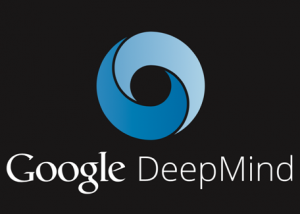 Privacy in the UK
Privacy in the UK
In the UK, privacy is supposedly taken very seriously and with the digital age, makes it very difficult to keep things under wraps as far as your records are concerned. But when you read about deeds like this you begin to wonder:
The NHS has given the medical records of 1.6 million patients to Google, it has been revealed. The records have been shared with Google as part of a data-sharing agreement between the technology giant and the NHS, revealed by The New Scientist. The records relate to patients of three London hospitals which form the Royal Free Trust; Barnet, Chase Farm and Royal Free Hospital collected over the course of the last five years. An estimated 1.6 million patients attend the hospitals every year. Google says it intends to use the data as part of its group DeepMind to develop a health app which can help recognise kidney injury. However, campaigners have expressed concerns that the data-share is a breach of trust and not in patients’ interest.
-
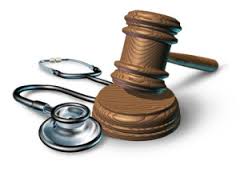 Malpractice and Negligence
Malpractice and Negligence
The fear of being sued is stifling our medical practioners. Doctors know that some treatments may be completely unsuitable for some patients. Still he will be forced to prescribe these treatments because treatise says this has to be the case. No matter that the doctor may know of a remedy that is just right for the patient in front of him. Even if the patient is keen to give it a try, the doctor or hospital will not risk it. If the drug or treatment is not on the ‘list’, it will not be used for fear of reprisals. The status quo must be upheld and all paradigms and dogmas adhered to. This despite the patient being the one taking all the risks, not the doctor or hospital!
Sent home to suffer
I actually know of an incident happening right now where a patient wishes to have an operation but the doctors will not allow it in case he doesn’t survive. They are more worried about their death figures than helping a desperately sick man. The medics have told him they can do no more and sent him home to suffer.
A doctor will be loath to use a treatment even if it has been researched and proven, unless it is standardised and has been well practiced by the medical fraternity and classed as a recognised procedure. This leads to outdated and antiquated practices in preferance to  more modern techniques that could be of great benefit to the patient. The patient is not the priority, the good name of the doctor or hospital comes first.
more modern techniques that could be of great benefit to the patient. The patient is not the priority, the good name of the doctor or hospital comes first.
But when it comes to drugs, big pharma has the techniques and control to push forward any drugs even if it has not being properly researched or test. It is ironic that because of the medical fraternity’s dogma and lack of foresight, complaints about medical negligence and malpractice are rife and increasing year on year.
-
Defensive medicine
This defensive medicine is at the nub of medical treatment and it is a great pity that doctors and hospitals are hiding behind a veil of evidence based practices that could be updated and brought into the 21st century to include modern proven double blind studies on nutrients and natural treatments instead of being hoodwinked and tempted by pharmaceutical companies to use drugs and procedures that are causing worsening of health and even death.
The problem with this fear of being sued can be expanded to include unnecessary tests and procedures which will legally cover the doctor or hospital in case of a lack of care suit but could not be in the patient’s best interests.
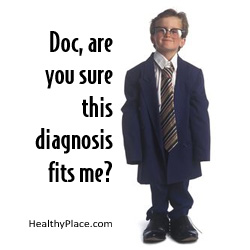 Do doctors lie?¹
Do doctors lie?¹
Also the medic may inform a patient of an untruth saying, for instance, that they are likely to have cancer when the doctor knows it is unlikely. This protects him from a lawsuit in the unlikely event that the patient does have cancer. Or he may suggest chemo and/or radiation therapy when he knows it’s probably not the best course of action, especially if the patient doesn’t have cancer in the first place.
This is the medical profession looking out for themselves instead of doing the best for their patients. It can lead to stress and fear for the trusting public with the doctor perhaps prescribing unsuitable drugs and procedures causing adverse side effects, including death. The fear of a ‘failed to treat’ lawsuit can drive this behaviour and is a way of practising medicine that is taken for granted. Defensive medicine seems to be at its worst in hospitals where elderly patients in particular are really at risk.
-
Insurance
Much private or non-governmental health coverage in the US is employment based. Most large employers give group health insurance to their employees. Whether governmental or private your doctor will be swayed to give certain tests and drugs and procedures depending on your health insurance or not as the case may be.
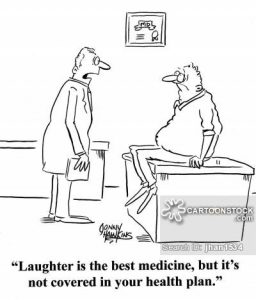 Does your insurance cover all treatments?
Does your insurance cover all treatments?
If your insurance does not cover certain procedures or treatments then they will often be ignored. Unless your doctor is one of the rare ones, it is unlikely that you will be informed of your options, especially if your insurance doesn’t cover some of them. Your doctor will not want to be put on the spot if the treatment he thinks is best for you is not covered by your policy. Knowing you may be upset if you can’t get the treatment recommended, he would rather suggest a method that you are insured for. This may not be in your best interest. Practioners can be reprimanded or even lose their job if they suggest a method of treatment that is not covered by insurance. This proves that you, the patient, are not the priority. Your doctor follows guidelines laid down by obscure individuals who only know you as a number and treat you in accordance with statistics and calculations.
-
Rules & Regulations
There are so many rules and governmental regulations that hospitals, medics and technicians have to comply with. The cost of adhering to these controls is extremely high. These ‘backroom’ expenses have little to do with patient care and take a great chunk out of the already stretched time and resources of the medical profession which can only be detrimental for patients.
It is common knowledge that most doctors, hospitals and other medical departments are often given ‘sweeteners’ or bribes by pharmaceutical companies to push their drugs and medical equipment. These companies are required to report their spending on promotions and advertising. It is estimated that each doctor on average in the US receives in excess of $10,000 annually from these ‘incentives’.
The government is also guilty of this practice offering bribes to encourage the use of cheaper or new drugs. Doctors are used as tools to push specific drugs, procedures and devices. This does not mean these are the best on the market. With new drugs, patients are often used as guinea pigs with many of these pharmeutical drugs being dropped after serious side effects or even deaths of the unsuspecting patients.
Over 50% of medical studies done today are biased towards the pharmaceutical company who have often enlisted the help of doctors and medics to procure a poor quality, phony study. Statistics of these sham studies are massaged to produce a particular result in favour of the drug, procedure or device that is being ‘researched.’ The drug companies will pay top dollar for the work and the conclusions, always favourable, that are then used to promote the so called researched treatment.
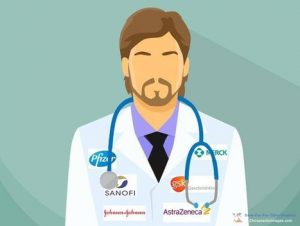 Doctors are just puppets of the system
Doctors are just puppets of the system
Your doctor then reads these studies having no clue that they’ve been rigged. They will be touted in journals such as The Lancet, JAMA (The Journal of the American Medical Association), The BMJ (formerly The British Medical Journal) and other accredited medical publications.
Many of these journals are supported by drug advertisements so despite the corruption being known by the journals’ editors, the problem gets brushed under the carpet. The result is you the patient, end up getting prescribed these sub standard and poorly researched treatments which could have dire effects on your health.
If you are offered a new drug, IMHO the best course of action is to refuse it until it has been fully tested for a number of years and all the side effects have been accounted for.
 Why is it that those in the medical profession are considered to be of a superior intellect than other professionals, when this is clearly not the case. This enigma will be appraised in part two of this article.
Why is it that those in the medical profession are considered to be of a superior intellect than other professionals, when this is clearly not the case. This enigma will be appraised in part two of this article.
Ches
-
Prim Care Companion J Clin Psychiatry. 2009; 11(4): 163–168.doi: 10.4088/PCC.09r00780 ‘Lies in the Doctor-Patient Relationship’ John J. Palmieri, MD and Theodore A. Stern, MD
Spread the word!
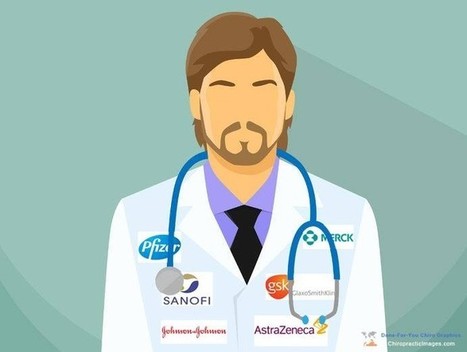
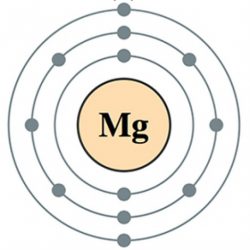

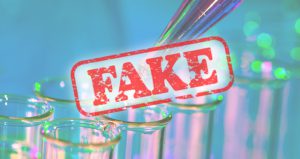
All my life I’ve been anti-doctor believing we can heal ourselves eating good nutrition and using quality supplements. I was like this because no doctor has been able to help me when I was suffering, it’s like I was always hitting a brick wall. I’ve been very ill in the past with ME and other illness, but somehow managed to cure myself.
My anti-doctor belief all changed when my eldest daughter fell very ill last year whereby she desperately needed a good doctor. I know some doctors are just awful but we just so happen to get a really good one. Without medical help my daughter would not have made it, she now has to permanently take meds because without them she would not be able to function or lead a fairly normal life.
Though we landed with a very doctor, I am still very cautious. Overall, I think the medical system has one goal in mind, which is being money driven.
Hi there Sharon May and I’m so pleased you found one of those rare doctors that has really made the difference for you and your daughter. Unfortunately, many patients find themselves on a treadmill of drugs and management of their condition instead of the doctor trying to find the root cause of the illness and working out a solution that may actually cure the condition instead of just manage it. You are also wise to still be cautious and take matters into your own hands by doing your research into the conditions that affect you and your family. We can’t expect every doctor to know everything about everything so educating yourself is your best defence. If there was a cure for every disease the pharmaceutical companies would be out of business and this is why they are driven to control and not cure. Ches
It is very interesting to find an article in the net that reveals the truth about medical profession.
We need doctors in cases of emergency when our lives are at risk but it is distressing to learn the truth that the medical profession were influenced by malpractice and misconduct. It’s a reality that actually happening everywhere.
I really admire your courage to talk about the subject. It must be read. Thank you and wishing you all the best!
It is difficult to write about a profession that we have always held in high regard, but it is the truth. I don’t necessarily think it is the fault of our medics but more the system that controls them. Of course, we need doctors, but for them to do their jobs to their maximum ability, they need to be given more leeway to use their own expertise instead of being on tentahooks in case they get reprimanded for being innovative and bucking the trend. Teaching doctors about vitamins, minerals and nutrients would be a good start! Thanks for your comments and input delroaustria. Ches
Excellent article and insight. And what a great question. As a person who has had health problems for a long time I know how important Dr. patient care is.
To make it things worst I am a Veteran of the United States military. Not sure if you have heard or not but the VA has been abusing us. I have seen this.
I have not been to private practice Dr.s a lot. But you hit on some very valid points. Sometime the Government interferes too much in medicine I think. Butttt. we do need safe guards. Tough balance
Thanks for your input and comments. I have read about the abuse of those in the military and it is disgraceful when you and others have put your lives on the line. But I can see by your lovely gravatar picture that you are able to deal with what is thrown at you. Nice smile! Ches
Hi Ches,
Your article truly resonates with my view of the medical profession. Many doctors take an oath to serve and do no harm. However due to licensing requirements, scientific dogma, and pharmaceutical lobbying, their medical education has become warped towards polypharmacy and putting chemical band aids on problems rather than curing the underlying causes. I know a few doctors who are open to alternative medicine but remain fearful of ridicule from the larger scientific community even if there is good evidence to support some practices.
In the UK, many family physicians are starting to break out of their shell and learn alternative practices like acupuntcure. This is greatly welcomed since traditional medicine doesn’t have all the answers.
If many of the pharmaceutical medications really worked – why would we need to keep taking them on a regular basis?
Exactly right Dushan, if the drugs worked, why are we taking so many of them for life with our health deteriorating as we age. I think this is because of the extra toxic burden the body has to deal with. I have just finished reading statistics that state that the life expectancy in the US has reduced, how scary is that! It also states that “the US ranks 29th out of 43 countries for life expectancy, lagging behind countries like Chile, Costa Rica, Slovenia, Korea and the Czech Republic.” This is damning evidence of the supposed most technologically and medically advanced country in the world, producing figures more akin to a 3rd world state! The only way we can protect ourselves and our family is by education. We then have the tools to make our own decisions about our health and wellbeing, working with our medics in partnership, rather than sitting back and letting them control our health and our lives. Thanks for your input. Ches
You are totally right. I have a long time that I don’t really trust any of them. they look for every opportunity to take money for you. it is very difficult to find an honest one. To be honest, about the vet you are right.
I have a dog and I have a wonderful vet for his, he saved his life a few times.
I have to tell you that once I had an allergy on my hand and happen to go with my dog to the vet. I asked him about my allergy and he told me what to do. I didn’t want to go to dermatology because I knew they will give me 10 creams and many pills like always when you have something. In 2 days I was perfect:)
You will find it strange to ask the vet…but was there, and i asked:) I knew he is a good honest man 🙂
Thanks for sharing. I love your site
Cristina
Thanks Cristina for your comments and input. I can remember my mother-in-law when she was alive, had a problem with her leg. The vet was making a house call about one of our horses. The vet came into the kitchen for a cuppa and suddenly a leg came around the door jamb moving up and down slowly. It was so funny. I said “Mum it’s the vet not the doctor”. “Yes I know” she said from the hallway. “Ask him if could have a look at my leg!”
The ‘Super Vet’ I speak of in the post does amazing work saving dogs and cats legs by giving them a permanent new paw or leg, new hips, wrists, knees and even curing paralising back problems that for us humans would keep us in a wheelchair for life. This work far exceeds the quality of what humans have available to them, so why is this? With the Super Vet, the fixed limbs are permanent and become part of the body of the animals, with new bone growing into the artificial body parts. Paralised animals walk again, within days of their operations. Prof. Noel Fitzpatrick is known as the Bionic Vet. Where are our bionic doctors?